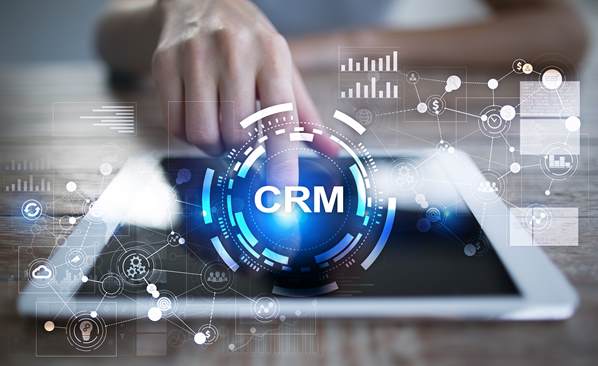
Today’s customers make their purchasing decisions on the overall experience they have with a brand. Therefore, offering great customer experience is one of the most important goals.
Customers also rely on the experiences of their peers before choosing a brand to spend their money with. Thus, it is vital to ensure that companies offer top quality services and support to all their customers and clients. With the spread of social media, word of mouth recommendations have never been easier.
Thanks to technological advancements, now it is simpler than ever to interact with your customers and potential customers exactly the way they prefer you to and build lasting relationships. Customer Relationship Management (CRM) software is a great technology that can help your business focus on its relationships with customers, clients, suppliers and service users.
The functionalities of CRM
CRM software integrated into your business can do magic in helping you build long-lasting relationships with your customers. It has a multitude of capabilities and functionalities which enhance the customer experience and automatically helps your business achieve a good reputation among your targeted audience. CRM software comes with a wide range of customer data functionalities including recording customer contact information such as email addresses, phone numbers and social media profiles.
Moreover, in order to help you offer a better customer experience, CRM software comes with the capability to store details about each of your customer’s personal preference on interacting with your brand.
It can also help your business by automatically recording the most recent news or information about your company’s activity. It ultimately organizes all the information it gathers and offers you a complex record of customers and other companies to help you get a better understanding of your relationship with them.
Why is CRM important for businesses?
Customer relationship management (CRM) is one of the most essential keys for success nowadays. It helps businesses understand their relationships with their customers, improve their ways of interacting with them, and ultimately reach the goal of generating long-lasting customer engagement and loyalty.
In today’s digital world, customers’ preferences on how to interact with businesses have changed completely. Not only do they expect businesses to have a strong presence in the online world, but they also expect a personalized customer experience, instant feedback and solutions to their problems.
CRM software technology empowers businesses to record, store, and convert information to improve interactions with customers. Using data stored according to customer’s preferences and history of purchases, businesses are nowadays capable to build customer loyalty better than ever before.
Most CRM technology acquisition and implementation projects emphasize necessary requirements, available resources, and time. CRM software can require a tremendous amount of prep work for which software developers use sdlc methodologies to deliver a product that fulfills the business requirements and needs.
Use CRM as a tracking tool
One of the main functionalities of CRM software is to track customer interactions. It is one of the best ways to determine the relationship your brand has built with them. CRM software is also able to help you with tracking to improve the customer experience and encourage customers to engage more with your brand.
CRM software can also help you track and record a multitude of other things including response times, purchase patterns, and monitor retention rates. Customer’s interactions with a brand in the online world often takes place on the company website. These interactions can be translated and analyzed as online visits, click-throughs, or bounce rates. The more effectively your sales team is able to track and analyze all this data, the more likely they are to change and implement strategies for improved customer engagement and increased sales.
Personalized messaging
Personalization in customer relationship management is the hottest trend and seems to be extremely effective in attracting and retaining customers. Customers expect a brand to really make an effort in connecting with them rather than reaching out to them with standardized messages or marketing strategies like all other companies.
Personalization in customer experience relies on caring about customer preferences and trying your best to exceed them. In CRM, personalization relies on reaching the customers at certain times of the day when they are more likely to make a purchase with messages that specifically target each of the customers. Thanks to Artificial Intelligence analysis, the software can determine at what time of the day and to whom they should send a promotional message.
The main idea behind personalization in CRM stands in understanding the habits and interests of your customers and matching your marketing strategy and products to them.
CRM self-service solutions
One of the biggest challenges that today’s businesses deal with is to encourage their customers to finalize an online purchase and not only leave it in their shopping cart. Many customers want to purchase certain products or services online but ultimately don’t finalize the purchase because they can’t get effective feedback or answers to their questions. Thus, it is imperative for brands to look for the best solutions to provide their prospective customers with immediate feedback and answers.
CRM self-service solutions empower brands to customize and optimize the interactions of the customers with the business by providing immediate feedback. Self-service solutions also help companies by acquiring and storing customer data which can later be analyzed and used to improve the overall user experience.
CRM technologies can play a huge role in building long-term relationships with your customers. They can empower businesses to understand their customers’ preferences and purchasing habits and use the data to their benefit to improve their services and provide their customers with the best experiences. Ultimately, improved services and overall customer experience will lead to strong long-term customer engagement and loyalty.




